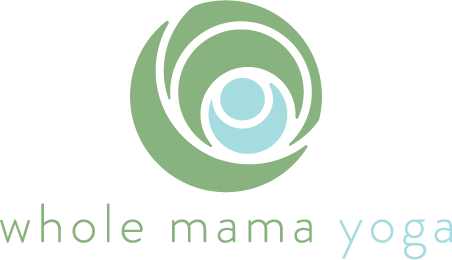Cesarean Yogini
During the first prenatal yoga training I took in 2004, someone asked the instructor whether prenatal yoga assisted in making labor and delivery easier. “It makes it easier to connect to your breath and to be fully present in the experience,” she answered, then paused. “What it doesn’t do, is anything to shift the bones of your pelvis.” One of the reasons that women attend prenatal yoga classes is in the hope that the poses, breathwork, and meditation will equip them with the tools for a successful birth experience. For many, a “successful birth experience” is an incredibly weighted term, loaded down with input from friends and relatives, societal pressures, internal hopes and fears and the experiences, both positive and negative, true and less so, that they’ve encountered. Every type of birth is criticized. If there IS an ideal birth, as envisioned by a subset of our privileged western culture, it includes little intervention, pain (if that's even what it's called) managed/embraced by non-medicinal means, a non-clinical setting, a vaginal delivery, immediate skin-to-skin contact, and a profound love and affinity for breastfeeding. Whew.
As a yoga instructor and, more specifically, a prenatal yoga instructor, I have battled the imposter complex when it comes to my own birth experience. I didn’t give birth to either of my children in a candlelit water bath at home, emitting only the sound of om as their heads crowned, basking in the rosy glow of oxytocin as they were placed in my arms. Instead, surrounded by at least a dozen medical professionals in a cold and fluorescent operating room, my first feeling when I saw my son was not one of pure bliss, but, rather, extreme nausea. I was amazed to see him but, I REALLY didn’t want to throw up on his head. I didn't get skin to skin contact, as more attention was being focused on my uterus which was, as my midwife had informed me before the operation, "kaput." Nauseous first glimpse aside, I didn't see Simon until several hours after he was born. After his delivery, I basked, instead, in the glow of morphine, the bliss of a catheter (for a bladder that had seen constant action for 9 months), and the delight of gatorade.
In the wee hours of the morning, when the nurse asked if I needed anything, it dawned on me that I hadn't actually held my son. Liters of blood lost, a vast array of drugs in my system, and no actual feeling in my lower body, my physiological state was far from ideal. Holding Simon, however, was absolutely perfect.
I didn't struggle with my own birth experience until someone told me that I should. A visitor hugged me and, with tears in her eyes, told me how sorry she was that I "had to have all of those interventions." Her intentions were good and her expressed sorrow was more a reflection of her concern for me, rather than concern over my missed experience. But, with just a few words, a small seed of doubt took hold. Did I do everything I could? Was I just not strong enough? Did my body not understand its role? I hadn't been sorry. Until I was.
Questions have risen, intermittently, in the 5 years since Simon was born. By talking to other women, writing, yoga, and (mostly) experiencing motherhood (and how much of it doesn’t go “as planned”), I’ve been able to release a great deal of the "should" as far as my own role in my son’s birth. It took some time to get here - to a place of peace, with a sense of authenticity that, even though I gave birth in a way that I never anticipated, my experience is every bit as valid. Were there things that could have been done differently? Sure. Are there questions that remain about my body, the experience in general? Certainly. That’s always the case, though, isn’t it? Life, as the saying goes, is what happens when you’re busy making other plans.
I am a fervent advocate for women’s empowerment during pregnancy, delivery, and postnatally and think that how empowered a woman feels during her labor can go a long way in determining her feelings about her birth experience. But, things don't always fall completely in line with a predetermined plan - our bodies, circumstances, powers beyond our comprehension, all seem to have some role to play as well. Sometimes, decisions are made without our full understanding, interventions don’t work, and circumstances feel much less within our realm of control than we’d like. Regardless of whether your birth went exactly as you envisioned or nothing at all like it, every woman has reason to feel incredibly proud of her role in her own birth. It’s all valid and it’s all incredible. Instead of every type of birth being criticized, we should celebrate the many means and methods of strength, endurance, love and power that are required to bring a new human into this world.
And so, to those new moms in my yoga class, the practice may help you strengthen and stretch the muscles surrounding your pelvis, create space in your lower back, and ease some of the common aches and complaints of pregnancy. Your birth may or may not go as planned. But, you, my friend, will be awesome.
IMG_6261

